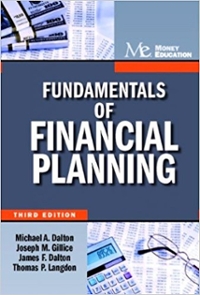Disability Income Insurance Can Replace Your Earnings if You Can't Work Disability income insurance is intended to replace your earnings if you are injured or ill and can't work for an extended period of time. All insurance requires premium payments and, as a general rule, the more generous the provisions, the expensive the premiums. Taking the time to gather information about your sources of disability income and doing some simple arithmetic not only helps you determine the amount of coverage you'd need, but could reveal sources you forgot or didn't know about. The more you already have available, the coverage you have to purchase, and the less coverage you have to purchase, the the premium you have to pay. To arrive at the amount of disability income you would have to provide for yourself, you'll compare your earnings to the benefits you'd receive from government, employer, or private programs. The show much you'd be short-and it is extremely unlikely that you wouldn't be short. 1. Start with your pay. 2. Determine if you'll be eligible for Social Security disability. Remember that you will only be eligible if you expect to be disabled for at least 3. Determine if you'll be eligible for disability benefits from other government programs. Remember that if you're hurt on the job, you will probably be eligible for disability under 4. Ask your employer about company sponsored disability plans with benefits. Many companies provide fully paid programs as part of their basic benefits packages. An example is sick pay. Also, although they are not exactly disability pay see if you have paid vacation or personal days coming to Disability Income Insurance Can Replace Your Earnings if You Can't Work Disability income insurance is intended to replace your earnings if you are injured or ill and can't work for an extended period of time. All insurance requires premium payments and, as a general rule, the more generous the provisions, the expensive the premiums. Taking the time to gather information about your sources of disability income and doing some simple arithmetic not only helps you determine the amount of coverage you'd need, but could reveal sources you forgot or didn't know about. The more you already have available, the coverage you have to purchase, and the less coverage you have to purchase, the the premium you have to pay. To arrive at the amount of disability income you would have to provide for yourself, you'll compare your earnings to the benefits you'd receive from government, employer, or private programs. The show much you'd be short-and it is extremely unlikely that you wouldn't be short. 1. Start with your pay. 2. Determine if you'll be eligible for Social Security disability. Remember that you will only be eligible if you expect to be disabled for at least 3. Determine if you'll be eligible for disability benefits from other government programs. Remember that if you're hurt on the job, you will probably be eligible for disability under 4. Ask your employer about company sponsored disability plans with benefits. Many companies provide fully paid programs as part of their basic benefits packages. An example is sick pay. Also, although they are not exactly disability pay see if you have paid vacation or personal days coming to







